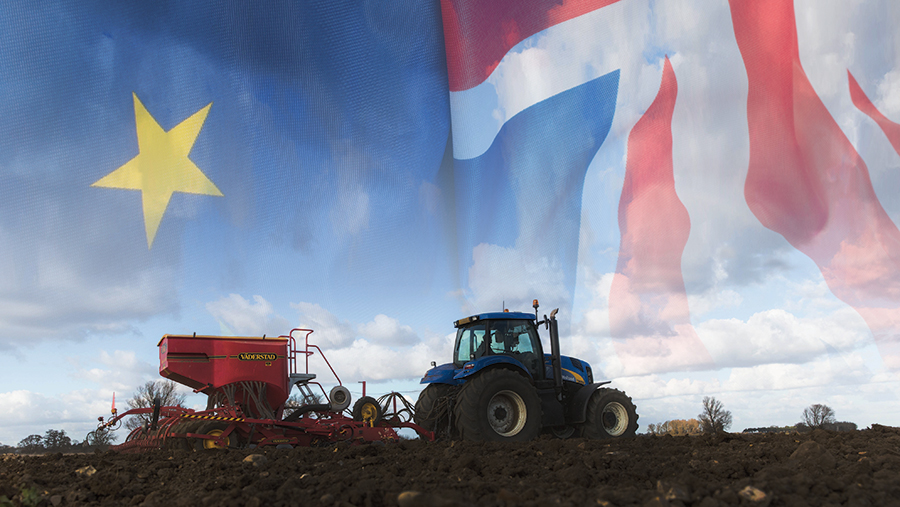Direct payments to be phased out by 2027
 © Tim Scrivener / ING Image
© Tim Scrivener / ING Image Farm subsidies in England will be phased out over seven years, ending in 2027, under plans outlined in the government’s long-awaited Agriculture Bill.
Direct payments will be replaced with a new system of “public money for public goods”, largely based on rewarding farmers who undertake environmental measures.
But there are no guarantees that money made available under the new system will match the total amount currently paid to farmers as direct payments.
See also:
- Reaction: Agriculture Bill falls short, say farm leaders
- More detail on Agriculture Bill: ‘Golden handshake’ to quit farming
- Analysis: How Michael Gove’s Agriculture Bill will reshape UK farming
Legislation to deliver the new system after the UK leaves the European Union is being introduced into Parliament on Wednesday (12 September).
It follows the government’s Health and Harmony consultation earlier this year.
The Agriculture Bill suggests that direct payments in 2019 and 2020 will be made on much the same basis as now – subject to simplifications where the government deems possible.
Seven-year transition
From 2021, however, direct payments to farmers in England will start to be phased out – disappearing completely by 2027.
Defra secretary Michael Gove said the seven-year agricultural transition period would give farmers time to adjust as they planned for the future.
Mr Gove said: “The introduction of the Agriculture Bill is a historic moment as we leave the EU and move towards a brighter future for farming.”
The government says direct payments will be “delinked” from the requirement to farm the land for the duration of the transition period.
Farmers will be able to use the money to invest in their business, diversify their activities or else retire from farming and give way for new entrants into the sector.
See also: How to prepare and manage your farm business for Brexit
Most farmers will see some reduction to their payments during the transition, although those who receive the highest payments will see bigger reductions initially.
The government says this will free up funds to invest in public goods.
New system
Rather than direct payments, the new system will see farmers paid for “public goods”, such as better air and water quality, soil health and higher animal welfare standards.
Other public goods include access to the countryside and measures to reduce flooding.
A new Environmental Land Management (ELM) scheme will begin next year, with Defra working with farmers to design, develop and trial the new approach.
Mr Gove said: “After nearly 50 years of being tied to burdensome and outdated EU rules, we have an opportunity to deliver a Green Brexit.
“This Bill will allow us to reward farmers who protect our environment, leaving the countryside in a cleaner, greener and healthier state for future generations.
“Critically, we will also provide the smooth and gradual transition that farmers and land managers need to plan ahead.”
Other measures
The new system will be underpinned by measures to increase productivity and encourage farmers to invest in new technologies.
This will include funding for farmers who collaborate on research and development projects into topics such as soil health or sustainable livestock farming.
The government argues that the current system of direct payments is ineffective and pays farmers based on the total amount of land farmed.
It also argues that the payments are not linked to any specific public benefit.
It says direct payments are skewed towards the largest landowners, with the top 10% of recipients receiving almost 50% of total payments and the bottom 20% receiving just 2%.
| Year | What will happen |
| 2019 |
|
| 2020 |
|
| 2021 |
|
| 2022-24 |
|
| 2025-26 |
|
| 2027 |
|
| 2028 onwards |
|
